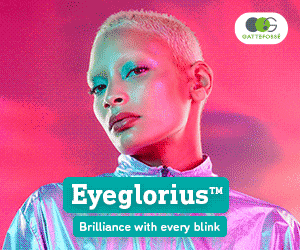Last year, British animal rights group BUAV launched Cruelty Free International (CFI) in a bid to abolish animal testing for cosmetics on a global scale. With 80 per cent of nations around the world still condoning animal experiments, CFI's chief executive Michelle Thew believes the fight is far from over.
Which countries are most exemplary when it comes to promoting the cruelty free message?
Europe so far, has led the way in this issue. We're part of a global effort which builds on what has already been achieved in Europe. We now have an EU ban in place for animal testing on cosmetics and we're hoping that in March we'll see the introduction of an import ban. Despite this, animal testing remains a global issue so we need to make sure that the rest of the world now follows Europe's lead.
Which countries are most in need of regulation?
China is a country we're very focused on as it's a unique market. Even if a company is already selling a product that's been tested and proven safe in another country, China requires that they complete additional animal tests before entering the Chinese market. What we want to achieve is to encourage cruelty-free brands to be able to operate in China. While we are seeing some signs of change, we still need more companies to commit to not selling in China until its position changes.
What is the key reason why animal testing continues?
Tradition. It's a combination of the way things have always been done, along with the mistaken belief that in order to make a cosmetic safe, it needs to be tested on animals. A lot of regulators also take a tick-box approach to assessing safety and are simply used to seeing animal data. For companies, they have to invest in alternatives and be prepared to talk to regulators so there's a process involved. The good news is that this is slowly changing as more brands lead the way as cruelty-free companies.
Can brands continue to innovate with new ingredients without animal tests?
The issue is certainly triggered when companies work with innovative ingredients as they may argue that there isn't another way to carry out safety tests. We however, do believe that there are other ways. Not only can companies use in-vitro testing, but they can also use other methods like presenting dossiers to prove that ingredients are safe. It can no longer be argued that safety is compromised without animal testing because there are companies like The Body Shop and Paul Mitchell who have been cruelty-free and producing safe cosmetics for decades.
Why aren't cruelty-free cosmetics more widely adopted by the prestige market?
A lot of the prestige industry is controlled by several key players so we need to get them to get on board with our message. Despite this, we've seen progress over time through an increasing number of brands going cruelty-free. Traditionally, when consumers wanted to shop cruelty-free they needed to purchase from health food stores or organic shops. Today, it's much more mainstream and consumers can easily find cruelty-free products on their high street.
What's the most common public misconception regarding animal testing?
There's a view that animal testing was an issue in the 1980s and that it's been resolved. Confusion has been compounded by the fact that we've had a UK ban as well as a European ban, so people don't think about the world as a global marketplace and that the issue still exists elsewhere. We need to get the issue back on the agenda because the job simply isn't done. This is why we partner with brands and celebrities, so they can take the message back out into public awareness.



